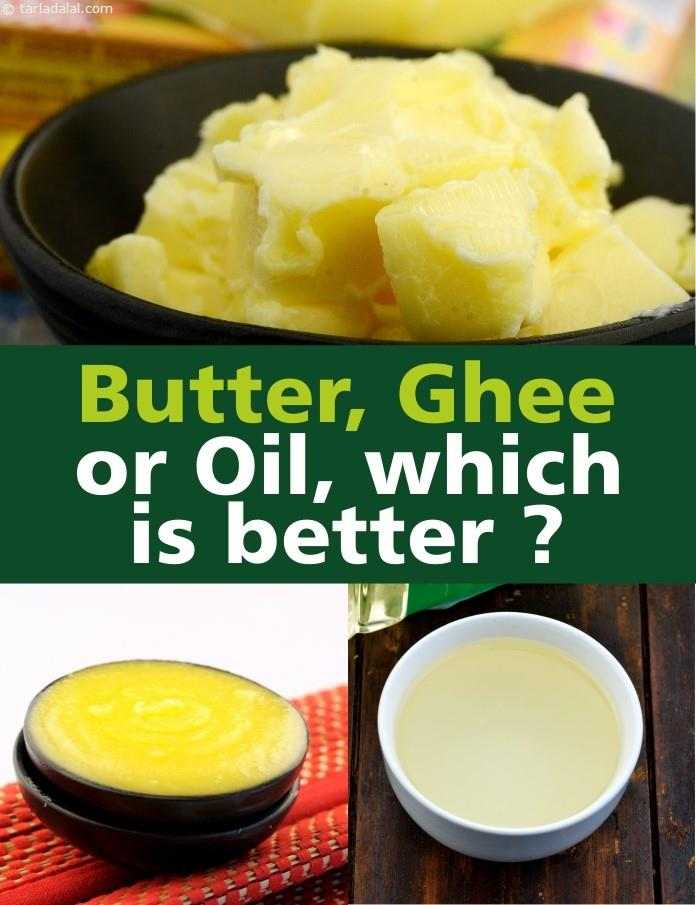Ghee vs. Butter: Uncovering the Differences
In the world of cooking, few debates are as passionate as the one between ghee and butter. Both of these dairy products have been culinary staples for centuries, gracing the tables of chefs and home cooks alike. But what sets them apart, and how do you choose between them? In this comprehensive guide, we’ll explore the nuances of ghee vs. butter, from their origins to their applications in the kitchen. Whether you’re a food enthusiast, a health-conscious consumer, or simply curious, this exploration of ghee and butter will leave you informed and ready to make the best choice for your cooking needs.

What is Ghee?
Before diving into the comparison, it’s crucial to understand the essence of ghee. Ghee, also known as clarified butter, has a rich history in Indian and Middle Eastern cuisines. This golden substance is essentially butter that has been heated to remove water and milk solids, leaving behind pure butterfat.
What is Butter?
On the other side of the ghee vs. butter debate stands butter, the beloved dairy spread enjoyed worldwide. Butter is primarily derived from cream, which is separated from milk. It’s available in various forms, including salted and unsalted, and it’s a fundamental ingredient in countless recipes.
Ghee vs. Butter: Nutritional Comparison
Now that we’ve delved into the basics of ghee and butter, it’s time to explore their nutritional profiles. Understanding the differences in nutritional content can be a crucial factor in choosing between these two dairy products.
Ghee’s Nutritional Profile
Ghee is celebrated for its rich flavor and potential health benefits. Here’s a closer look at its nutritional composition:
Calories:
Ghee is calorie-dense, containing around 112 calories per tablespoon.
Fats:
It is primarily composed of saturated fats (about 7 grams per tablespoon) and is a source of healthy fats like omega-3 and omega-9 fatty acids.
Vitamins:
Ghee is a source of fat-soluble vitamins, including vitamins A, D, E, and K.
Lactose and Casein:
Ghee is virtually lactose-free and contains minimal casein, making it a potential option for those with dairy sensitivities.
Butter’s Nutritional Profile
Butter is cherished for its creamy texture and flavor. Let’s break down its nutritional content:
Calories:
Butter contains roughly 102 calories per tablespoon, slightly less than ghee.
Fats:
It is high in saturated fats (about 7 grams per tablespoon) and cholesterol.
Vitamins:
Butter is a source of fat-soluble vitamins, particularly vitamins A, D, and E.
Lactose and Casein:
Butter contains trace amounts of lactose and casein, potentially affecting those with dairy allergies.
Ghee vs. Butter: Which Is Right for You?
The million-dollar question: should you opt for ghee or butter in your culinary adventures? The answer depends on your dietary preferences, health considerations, and culinary requirements.
When to Choose Ghee
Consider ghee if:
You’re following a lactose-free or casein-free diet.
You enjoy a rich, nutty flavor in your dishes.
You’re looking for a high smoke point for sautéing and frying.
You appreciate the potential health benefits associated with ghee’s healthy fats and fat-soluble vitamins.
When to Choose Butter
Opt for butter if:
You savor the creamy, classic taste of butter in your recipes.
You’re not concerned about lactose or casein content.
You’re using it as a spread or for baking.
You enjoy the flavor of butter in dishes like pastries and sauces.
Flavor Profile and Culinary Uses
The taste of ghee vs. butter can significantly influence your choice in the kitchen. Both offer unique flavor profiles that lend themselves to a variety of culinary creations.
Ghee’s Flavor Profile
Ghee is renowned for its rich, nutty, and slightly sweet flavor. As it’s made by simmering butter and removing milk solids, ghee retains the essence of butter while elevating it to new heights. This unique flavor makes ghee a popular choice in Indian and Middle Eastern cuisines, where it’s often used for sautéing, frying, and adding depth to dishes like curries and rice.
Butter’s Flavor Profile
Butter boasts a creamy, classic taste with a hint of natural sweetness. Its flavor is a beloved component in Western cuisines and baking. Butter enhances the taste of baked goods, mashed potatoes, sauces, and even simple dishes like buttered toast. Its ability to create a luscious, silky texture is a hallmark of butter’s culinary appeal.
Smoke Point: Cooking Performance
When it comes to the ghee vs. butter debate, understanding their smoke points is essential for cooking success. The smoke point is the temperature at which a fat or oil begins to break down and produce smoke. Cooking beyond this point can result in undesirable flavors and potentially harmful compounds.
Ghee’s Smoke Point
Ghee has a higher smoke point compared to regular butter, typically around 450°F (232°C). This makes ghee an excellent choice for high-heat cooking methods like frying and sautéing. Its stability at high temperatures means it won’t burn or develop a bitter taste easily, making it ideal for achieving that perfect sear on meats and vegetables.
Butter’s Smoke Point
Regular butter, on the other hand, has a lower smoke point, usually around 350°F (177°C). While unsalted butter has a slightly higher smoke point due to the absence of milk solids, it’s still better suited for medium-heat cooking methods like gentle sautéing or baking. For high-heat cooking, clarified butter (a form of butter with milk solids removed) is a better alternative.
Lactose and Casein: Allergies and Sensitivities
For individuals with dietary restrictions or sensitivities, understanding the presence of lactose and casein in ghee vs. butter is of paramount importance. Let’s explore how these dairy components can impact your choice.
Lactose and Casein in Ghee
One of the key differences between ghee and butter is their lactose and casein content. Ghee is produced by simmering butter and removing milk solids, including lactose and casein. As a result, ghee is virtually lactose-free and contains minimal casein, making it a suitable option for individuals with lactose intolerance or dairy allergies.
Lactose and Casein in Butter
Butter, on the other hand, retains both lactose and casein since it’s made from cream. While the levels of these dairy components in butter are relatively low, they can still pose issues for those with lactose intolerance or dairy allergies. However, some individuals with mild lactose intolerance find that they can tolerate butter in moderate amounts.
Ghee vs. Butter: Which Is Healthier?
The health-conscious among us often wonder whether ghee or butter is the healthier choice. To determine this, we need to examine the nutritional aspects and consider specific dietary preferences.
Practical Tips for Choosing
As you stand at the crossroads of the ghee vs. butter dilemma, practical guidance can help you make an informed decision. Consider these tips when selecting the right option for your culinary needs.
Assess Your Flavor Preferences
Start by considering the flavor you want to impart to your dishes. Ghee offers a rich, nutty taste, while butter boasts a creamy, classic flavor. Your choice should align with the specific taste you desire in your culinary creations.
Evaluate Cooking Methods
Think about the cooking techniques you frequently use. If you often sauté or fry at high temperatures, ghee’s higher smoke point makes it a suitable candidate. On the other hand, for baking and lower-heat cooking, butter is a natural choice.
Dietary Considerations
Take into account any dietary restrictions or preferences. If you’re lactose intolerant or have dairy allergies, ghee’s minimal lactose and casein content may make it a safer option. Butter is more appropriate if you have no such concerns.
FAQs about Ghee vs. Butter
Q1: What is the main difference between ghee and butter?
A1: The primary difference lies in their composition. Ghee is clarified butter with milk solids and water removed, while butter is made from cream.
Q2: Is ghee healthier than butter?
A2: The answer depends on your dietary goals. Ghee has a higher smoke point and is suitable for high-heat cooking, while butter offers a classic flavor.
Q3: Can I use ghee as a butter substitute in baking?
A3: Yes, ghee can be used as a butter substitute in many baking recipes, but it may alter the flavor slightly.
Q4: Which has a higher calorie content, ghee, or butter?
A4: Ghee is slightly higher in calories than butter, but the difference is minimal.
Q5: Does ghee contain lactose and casein like butter?
A5: Ghee is usually lactose-free and contains minimal casein, making it a potential option for those with dairy sensitivities.
Q6: Is ghee or butter better for sautéing and frying?
A6: Ghee’s higher smoke point makes it better for high-heat cooking methods like sautéing and frying.
Q7: Can I make my ghee at home?
A7: Yes, you can make ghee at home by simmering butter and removing the milk solids. There are many online guides to help you through the process.
Q8: Are there different types of ghee available?
A8: Yes, there are variations like cultured ghee and grass-fed ghee, each with its unique flavor and properties.
Q9: Which one is better for spreading on bread, ghee, or butter?
A9: Butter is the classic choice for spreading on bread due to its creamy texture and flavor.
Q10: Can I use both ghee and butter in the same recipe?
A10: Yes, you can often use both ghee and butter in a single recipe, depending on your flavor and cooking preferences.
Conclusion:
In the ongoing debate of ghee vs. butter, there is no one-size-fits-all answer. Both of these dairy products offer unique qualities that can elevate your cooking to new heights. Whether you’re striving for rich and nutty notes with ghee or the creamy classicism of butter, each has its place in the culinary world.




